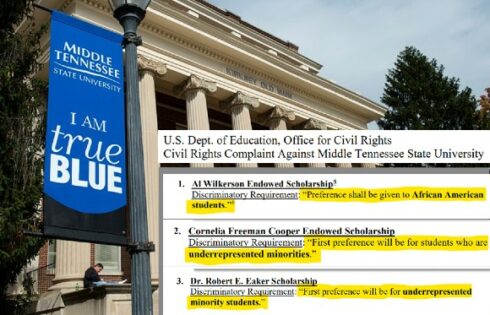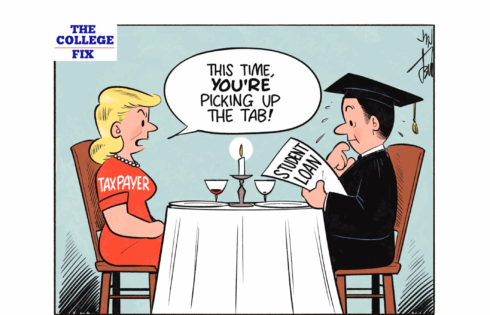
Expulsion possible for advocating for traditional marriage
You would think a large public university like Florida State would have received a warning letter before 2018 about flatly unconstitutional speech policies.
But America’s First Amendment watchdog organizations are apparently busy taking on censorship on other campuses. Maybe they’re just now getting to the Fs.
The Alliance Defending Freedom publicly warned FSU in a letter Wednesday that the window is short before it gets sued for violating its students’ rights under the U.S. Constitution and even state law.
Students recently told the organization about provisions of the student conduct code that could get them punished – all the way to expelled – if they say something “offensive” based on gender.
The sex discrimination policy prohibits “negative treatment or use of derogatory or offensive language toward a person because of that person’s gender, whether or not the language is sexual.”
Um, what? Florida State reserves the right to expel someone for, say, calling a biological female “she” if that person prefers to be addressed as “they”?
The code also prohibits “denying a benefit” to people because they don’t “conform to sexual stereotypical notions of masculinity and femininity.”
Here’s some spitballing by the alliance on what could get you in trouble at FSU:
Does that include denying a request for a date because of a person’s sex, when you would have accepted a date from a person of a different sex? Does it mean a male has to treat his female friends the same as his male friends in every way and vice versa? … is it “denying a benefit” “based on stereotypical notions of masculinity” if a female prefers a stereotypically masculine man as a partner?
The organization said one of the students that reached out is fearful that FSU will punish him if he publicly advocates for marriage as the union of “one man and one woman for life, and that sex is binary.”
These provisions are unconstitutionally vague and overbroad, granting unhinged authority to administrators to judge by their whims, if not flatly prohibited by the First Amendment, the alliance told FSU.
They certainly prohibit conduct far beyond the Supreme Court’s definition of student-on-student harassment from 1999’s Davis ruling: conduct that is “so severe, pervasive, and objectively offensive that it effectively bars the victim’s access to an educational opportunity or benefit.”
The alliance also reminded FSU of something it should know and act on expeditiously: Its speech zone and literature distribution policies violate recent updates to state law.
Florida became the ninth state to junk so-called free speech zones entirely, opening outdoor areas of campus where “members of the campus community are commonly allowed” to free speech. FSU still restricts student expression to “small areas of campus that do not leave open ample alternatives for expression,” the alliance said.
While the university is reviewing these policies in light of state law, it should also take a look at the other policies flagged by the alliance this summer, so they can be revised before the fall semester.
If FSU doesn’t respond by July 6, the alliance will “begin the process of seeking judicial review of the University’s unconstitutional policies,” Caleb Dalton, legal counsel for the alliance’s Center for Academic Freedom, told FSU President John Thrasher.
FSU has actually been on notice for years, as it turns out.
The Foundation for Individual Rights in Education gave the university its Speech Code of the Month nearly three years ago for its “offensive” ban, and the “gender based hostility” provision just flagged by the alliance is also dinged in FSU’s “red light” rating by FIRE, which was last updated a month ago.
MORE: Public university prohibits ‘harsh text messages’
IMAGE: avemario/Shutterstock
Like The College Fix on Facebook / Follow us on Twitter







Please join the conversation about our stories on Facebook, Twitter, Instagram, Reddit, MeWe, Rumble, Gab, Minds and Gettr.